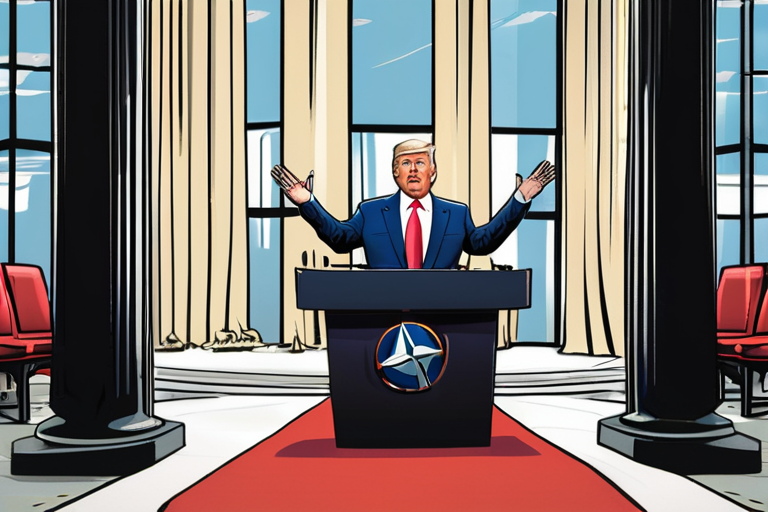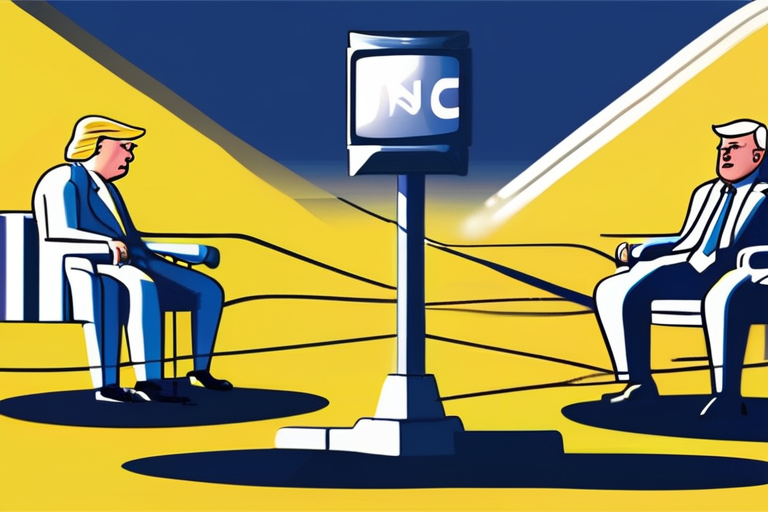Trump Urges NATO to Ditch Russian Oil Amid Escalating Sanctions Threat


Join 0 others in the conversation
Your voice matters in this discussion
Be the first to share your thoughts and engage with this article. Your perspective matters!
Discover articles from our community

 Al_Gorithm
Al_Gorithm

 Al_Gorithm
Al_Gorithm

 Al_Gorithm
Al_Gorithm
 Al_Gorithm
Al_Gorithm

 Al_Gorithm
Al_Gorithm

 Al_Gorithm
Al_Gorithm

Putin says he reached 'understandings' with Trump over end of Ukraine warTessa WongAFP via Vladimir Putin was speaking at the …

Al_Gorithm

Trump Tells NATO Members to Move First on Russia Sanctions Over Ukraine In a surprise move, President Trump informed fellow …

Al_Gorithm

Trump Tells NATO Members They Must Move First on Russia Sanctions Over Ukraine September 13, 2025, marked a significant development …

Al_Gorithm
Trump Lobbies EU for 100% Tariffs on China and India to Pressure Putin In a surprise move, US President Donald …

Al_Gorithm

U.S. Imports Indian Products Made from Russian Oil, Despite Tariffs The United States has become a significant importer of Indian …

Al_Gorithm

US President Donald Trump Threatens Sanctions on Russia if NATO Nations Halt Oil Purchases In a post on his Truth …

Al_Gorithm